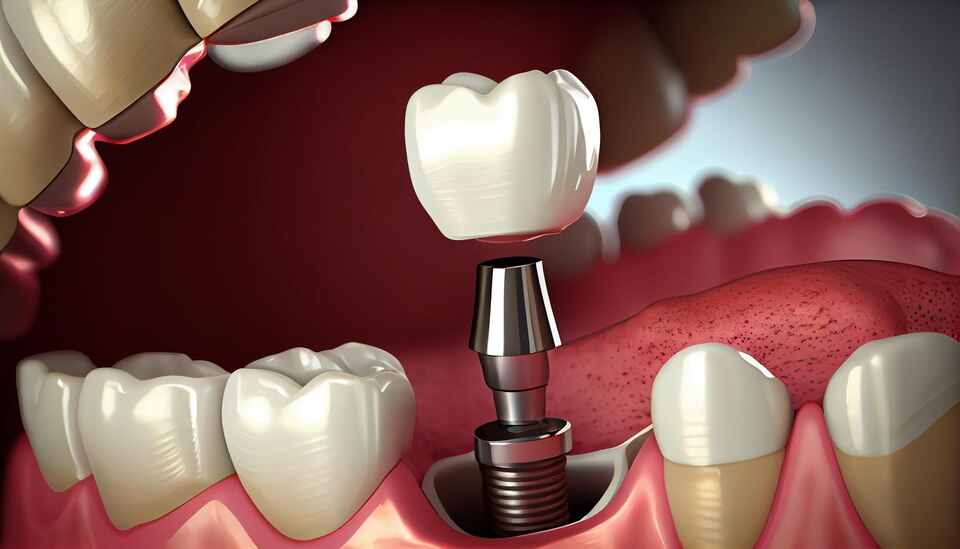Single Tooth Replacement
Losing a single tooth can be concerning, but there are several effective options for replacing it. In this guide, we'll delve into the various choices available for single tooth replacement, providing insights into the procedures, advantages, and considerations.

Single Tooth Replacement: Understanding Your Options
1. Dental Implants: The Gold Standard for Tooth Replacement
Dental implants are the top choice for single tooth replacement. They involve surgically placing a titanium post into the jawbone, which acts as a sturdy foundation for an artificial tooth. Implants offer durability, a natural appearance, and the preservation of surrounding teeth.
2. Dental Bridges: Bridging the Gap
Dental bridges are a traditional solution for single tooth replacement. They consist of an artificial tooth held in place by crowns on adjacent teeth. Bridges are effective, relatively quick to install, and a suitable option if implant surgery is not preferred.
3. Removable Partial Dentures: A Flexible Choice
Partial dentures are removable prosthetic teeth that can replace a single missing tooth or several. They are versatile, cost effective, and a noninvasive alternative to implants or bridges. However, they require regular maintenance.
4. Fixed Partial Dentures: An Alternative to Implants
Fixed partial dentures, also known as “Maryland bridges,” are adhesive bonded bridges that do not require crowns on adjacent teeth. They are less invasive than implants and provide a stable, natural looking solution for single tooth replacement.
5. ResinBonded Bridges: A Minimalist Approach
Resin Bonded bridges are a conservative option for replacing a single missing tooth. They involve minimal alteration of adjacent teeth and are suitable for certain cases where the teeth are strong and healthy.
Tooth Replacement: Considering the Cost
The cost of single tooth replacement varies depending on the chosen method. Dental implants are often more expensive due to their durability and natural appearance. Bridges and dentures are generally more budget friendly options. Dental insurance may cover part of the expenses, so it’s essential to discuss costs with your dentist.
Single Dental Implants Recovery Time
The recovery time for single dental implants varies, but it typically takes several months. During this period, the implant integrates with the jawbone, ensuring a strong foundation for the crown.
While you may experience some discomfort during the healing process, the result is a fully functional and painfree replacement tooth.

Single Dental Implant Process
Root Placement
The dental implant process starts with the surgical placement of a titanium post (the implant) into the jawbone. This post serves as an artificial tooth root and requires time to fuse with the bone through a process called osseointegration.
Crown Placement
Once the implant has integrated with the jawbone, a custom made crown is placed onto it. The crown is designed to match the color and shape of your natural teeth, ensuring a seamless appearance.
Appointment Placement
Throughout the implant process, multiple appointments are necessary, including consultations, implant placement, and crown placement. The timeline may vary, but the result is a fully functional and aesthetically pleasing replacement tooth.
Advantages Of Single Tooth Implants
Single tooth implants offer numerous advantages, including:
- Durability: Implants can last a lifetime with proper care.
- Natural Appearance: They closely resemble natural teeth in both look and function.
- Preservation of Adjacent Teeth: Implants do not require alterations to neighboring teeth, unlike bridges.
- Stability: Implants provide a stable and secure replacement that does not slip or move.
FAQ
The dental implant procedure is typically carried out under local anesthesia, ensuring minimal discomfort during surgery. The majority of patients report experiencing only mild soreness and discomfort during the post-operative healing period, which can be effectively managed with over-the-counter pain medications.
The complete dental implant process may span several months, contingent upon individual healing rates and potential prerequisites like bone grafting. Nevertheless, the result is a long-lasting and permanent solution for replacing missing teeth.
The majority of healthy adults are suitable candidates for dental implants. However, specific medical conditions or lifestyle habits such as smoking can impact the success of the procedure. Your dentist will conduct a comprehensive evaluation of your oral health and medical history to determine the suitability of implants for your unique circumstances.
Proper care for dental implants closely mirrors the care of natural teeth. Consistent brushing, flossing, and routine dental check-ups are imperative for preserving the health and durability of your implants.